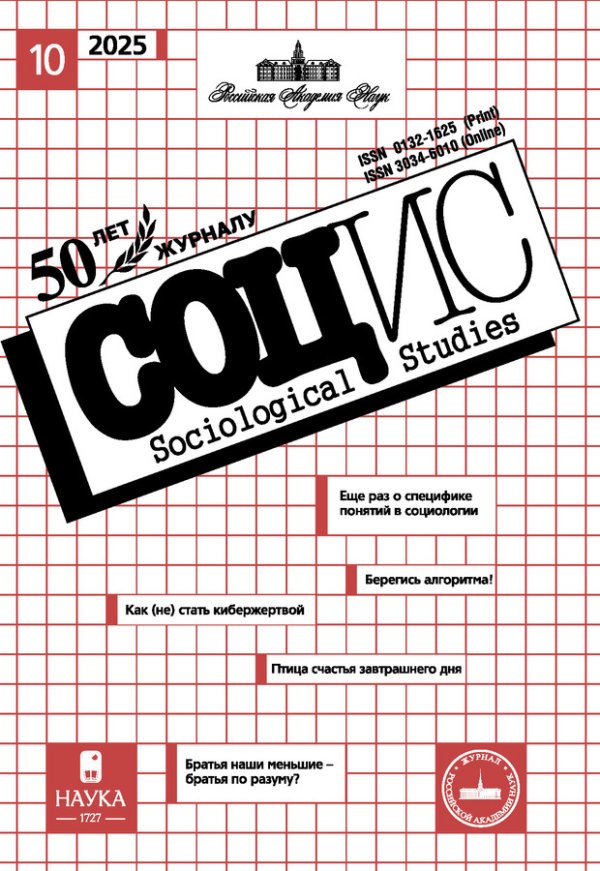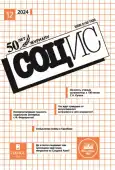Outer space as a platform for geopolitical cooperation and interaction: a case-study of China and Russia’s relations with other global powers
- Authors: Wang J.1, Kuleshova N.S.2
-
Affiliations:
- Shanghai University
- Lomonosov MSU
- Issue: No 12 (2024)
- Pages: 115-124
- Section: SOCIOLOGY OF INTERNATIONAL RELATIONS
- URL: https://rjsvd.com/0132-1625/article/view/683577
- DOI: https://doi.org/10.31857/S0132162524120105
- ID: 683577
Cite item
Abstract
In the context of modern political development, the space policies of certain states are becoming increasingly autonomous and politically driven, playing a significant role in shaping a new world order. Advances in science and technology have broadened the scope of participation in outer space activities, incorporating not only state actors but also private enterprises, thereby introducing additional challenges and complexities. Analyzing the actions and competition among the major space actors reveals the emergence of a new space order, where space exploration serves as both a strategic asset and a practical tool of foreign policy. This study focuses on space as a domain of political interaction among states in the era of globalization. Using a comprehensive interdisciplinary approach, the research identifies key issues on the global space agenda and examines the dynamics of state interactions as a foundation for achieving stability in both outer space and the broader geopolitical landscape. The study analyzes the space programs of leading nations, including the United States, China, and Russia, highlighting the dual dynamics of cooperation and competition. Additionally, it explores the efforts of advanced space powers to involve developing countries in space activities. Through cluster analysis, the study classifies the world’s key spacefaring nations into three groups: the United States (the undisputed leader in the space industry); China and Russia (key competitors and strategic partners of the U.S.); and a group including India, France, the United Kingdom, Italy, Japan, and South Korea (countries without independent human spaceflight capabilities). Importantly, many space powers prioritize achieving global military-political objectives through their space programs. The study also highlights a new type of cooperation between the Russian Federation and China, suggesting the emergence of a “new center of space power”. This partnership, characterized by initiatives such as the integration of satellite navigation systems (GLONASS and Beidou), the construction of an international lunar research base, and plans for a joint space station in low Earth orbit, underscores significant opportunities for collaborative scientific endeavors. While the traditional U.S.-Russia partnership has been a major factor in space politics, the current geopolitical climate signals a decline in this cooperation, paving the way for stronger Sino-Russian collaboration.
Full Text
About the authors
Jinhui Wang
Shanghai University
Author for correspondence.
Email: jasminew610@yandex.com
Dr. Sci. (Pol.), postdoctoral researcher
China, ShanghaiNatalia S. Kuleshova
Lomonosov MSU
Email: kuleshova-nataly@mail.ru
Dr. Sci. (Phil.), Professor Department of Global Processes
Russian Federation, MoscowReferences
- Жданов В. Л. Астрополитика: «распространение» геополитики в космическое пространство // Социально-гуманитарные знания. 2013. № 6. С. 276–281. [Zhdanov V. L. (2013) Astropolitics: “Spread” of Geopolitics into Outer Space. Sotsial’no-gumanitarnyye znaniya [Social and Humanitarian Knowledge]. No. 6: 276–281. (In Russ.)]
- Dolman E. C. (2003) Geostrategy in the Space Age. In: Geopolitics, Geography and Strategy. Ed. by C. S. Gray, G. Sloan. Portland, Oregon.
- 刘莹. 中国与俄罗斯太空合作分析 国际问题研究. 01.2024: 74–90. [Liu Ying. (2024) Analysis of China-Russian Space Cooperation. International Issues Research. No. 1: 74–90. URL: https://www.ciis.org.cn/gjwtyj/dqqk/202403/P020240312354015010334.pdf (accessed: 09.10.2024). (In Chin.)]
- 何奇松. 中美两国太空安全领域的互动[J] // 国际安全研究. 2017. Vol. 35(5): 26–52. [He Qisong. (2017) Interaction between China and the United States in the field of space security. International Security Studies. Vol. 35. No. 5: 26–52. (In Chin.)]
- 何奇松. 中美俄太空三角关系[J] // 太平洋学报. 2016. Vol. 24(12): 64–76. [China, the United States, and Russia. Space triangle relationship. (2016) Pacific Journal. Vol. 24. No. 12: 64–76. (In Chin.)]
- 戚大伟. 俄罗斯太空安全政策探析[J] // 国防科技. 2021. Vol. 42(6): 10–14. [Qi Dawei. (2021) Analysis of Russia’s Space Security Policy. National Defense Science and Technology. Vol. 42. No. 6: 10–14. (In Chin.)]
- 肖晞, 樊丛维. 构建东亚新型太空合作模式: 制约因素与路径选择[J]. 社会科学战线, 2019, (01): 219–230. [Xiao Wei, Fang Congwei. (2019) Building a New Type of Space Cooperation Model in East Asia: Limitations and Choice of Path. Social Science Front. No. 1: 219–230. (In Chin.)]
- 张茗. “一带一路”与我国国际太空合作的突破[J]. 国际关系研究, 2017, (01): 40–51. [Zhang Ming. (2017) «One Belt, One Road» and the breakthrough of China’s international space cooperation. International Relations Research. No. 1: 40–51. (In Chin.)]
Supplementary files












